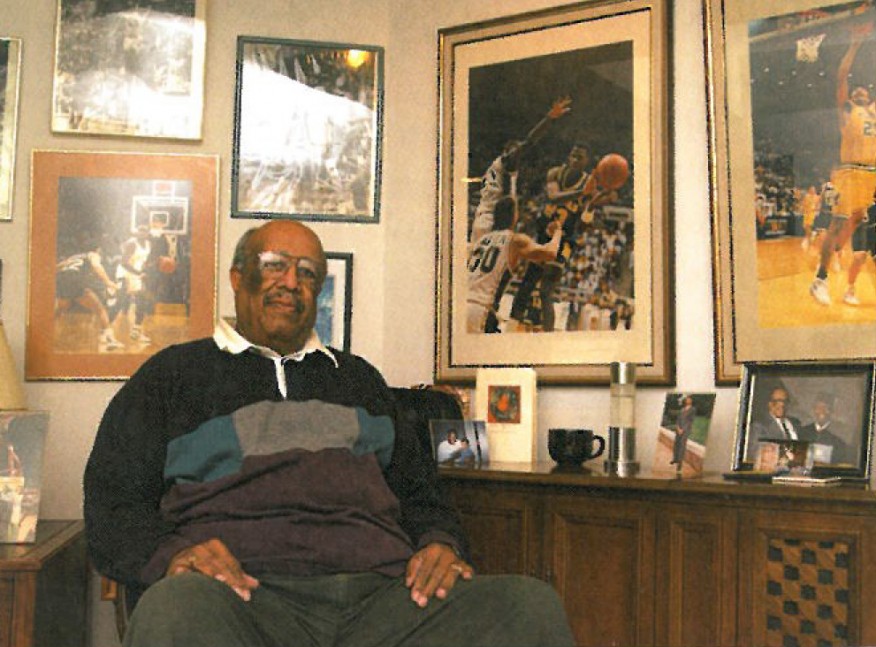Howard Brabson still calls them his "kids," never mind that some are now in their 50s and grandparents themselves. Their framed photos line every shelf and surround the maize and blue tiled fireplace in the Michigan Room downstairs. "I designed it for the kids, when they come back and visit," he explains.
And they do come back, not just the 74 Michigan athletes he mentored, but students he taught during his 22 years at the School of Social Work. He can tell you their life stories and the names of their children. Brabson counts them all as extended family.
In a distinguished career that spanned teaching, consulting, curriculum development and international leadership, the kids-his kids-are his gauge of success.
Raised in Knoxville, Tennessee, Brabson began working with youth when he was only 16 himself, as a program director for the YMCA. Math and law were his interests until his wife pointed out the opportunities in social work. He finished a B.S. while serving as an Army officer, the first African American graduate of Arkansas' College of the Ozarks. On scholarship, he earned an M.S.W. and later a D.S.W. from the National Catholic School of Social Service.
He worked as a caseworker, school superintendent and administrator with VISTA before joining the School of Social Work in 1969, part of the School's growing commitment to recruit, serve and retain minority students.
"Several of us were particularly concerned about the difficulties facing student athletes. Many of the Black athletes had never been at a large integrated institution. They tended to isolate themselves. I wanted them to really experience the University and all it had to offer."
The group formed a mentorship program which matched individual faculty and staff members with first-year athletes. For Brabson, the relationships usually continued through graduation and beyond.
He told the students, "I know you are glad to be admitted to the University of Michigan; now you have to do the University of Michigan work! We emphasized academics, helped them form study groups and learn to manage their time. They appreciated the support," he adds. "We did not have to win them over."
Brabson was building other bridges as well. He developed new courses such as "Social Work in the Black Community" and "Afro-American Life and Culture," and helped bring more minority-related content into the existing curriculum. Other universities sought his input on curriculum development. As his reputation grew, so did his involvement on the state, regional and national levels, including the White House Conference on Families, the National Symposium on Social Security and several Health and Human Services task forces.
He is perhaps best known as a founder of the National Association of Black Social Workers, which now has 113 chapters and over 3,000 members. Brabson is a past president ofNABSW and convener of its international conferences, which bring hundreds of social workers each year to Africa and the Caribbean. He served as a national consultant to NABSW after retiring from U-M in 1991, and in 2000 received the group's Lifetime Achievement Award.
He has been honored around the country for humanitarianism and community service, and by the University with its prestigious Faculty Recognition Award.
Yet nothing else matches the satisfaction he has gained from teaching and mentoring. By the mid-'80s, the mentoring program was so successful it was officially adopted by the Athletics Department. Former Head Football Coach Bo Schembechler called Brabson, "one of the great teachers of this institution. He has great interest in these young peoplemore than any other man I've met here."
More broadly, he simply has a great interest in all people. Brabson still attends his Army battalion reunions. A genealogist, he maintains records of some 1,700 descendents of his great, great grandmother. And his active travel and consulting activities create more opportunities to visit the kids.
"I enjoyed every one of them," he declares. "And I still do. Every person is very special to me."
-Pat Materka, a former U-M staff member, is a freelance writer who owns and operates the Ann Arbor Bed and Breakfast.
